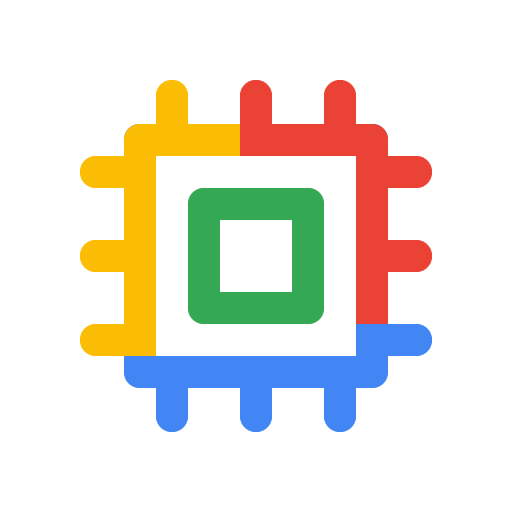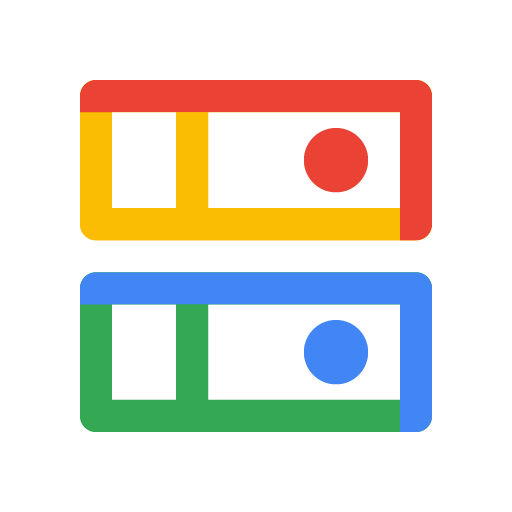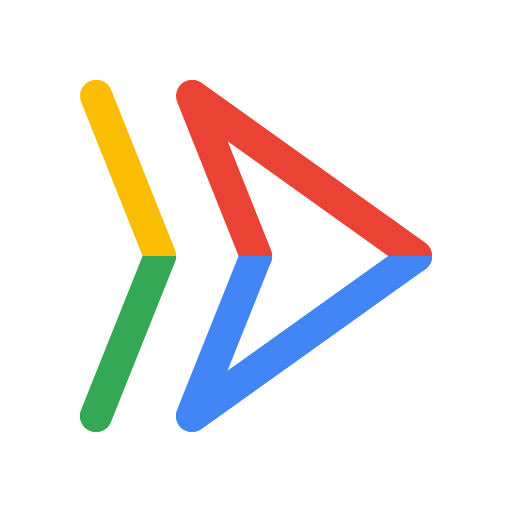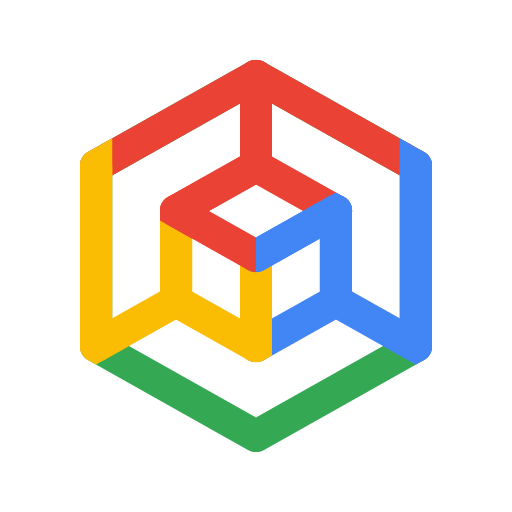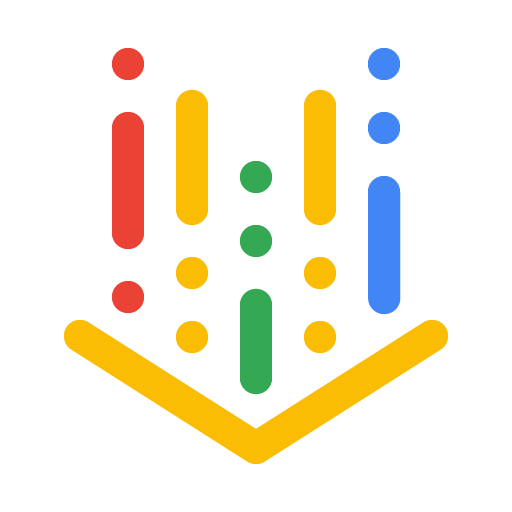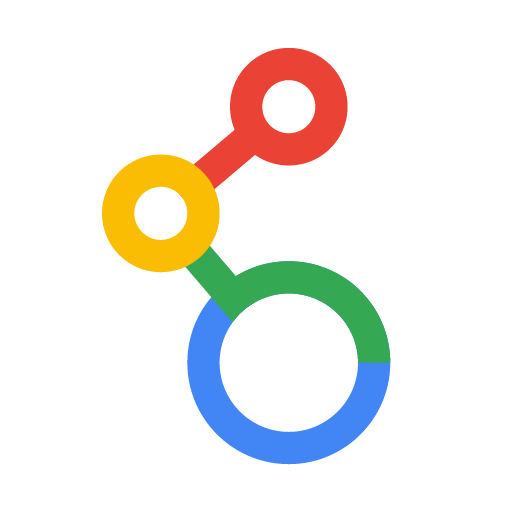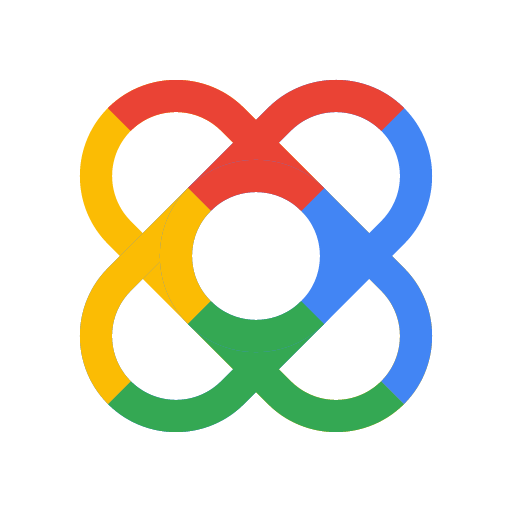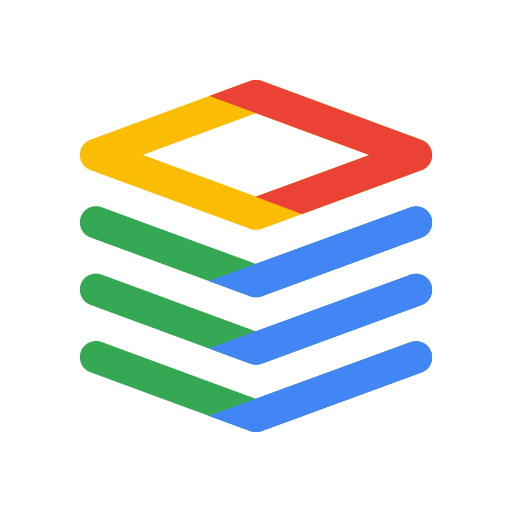| CARVIEW |
What are containerized applications?
Containerized applications are applications run in isolated packages of code called containers. Containers include all the dependencies that an application might need to run on any host operating system, such as libraries, binaries, configuration files, and frameworks, into a single lightweight executable.
The process of containerizing applications makes application development faster, more efficient, and secure by separating different functionalities from hardware dependencies and other pieces of software. Containers can run on any host operating system and are isolated from other software and hardware objects, making them versatile tools to build applications that can be built once and run anywhere.
From Google Search to YouTube and Gmail, everything at Google runs through containers. The open source platforms Kubernetes and Knative were developed at Google and are some of the most widely used tools to manage containers and applications.
Benefits of containerized applications
Isolation
As each containerized application exists in an isolated environment away from other apps and system components, faults within the application won’t affect other applications or the local system, which can limit the scope of bug incidents.
Portability
Containerized applications operate independently of the operating system and thus can be ported to nearly any environment such as physical servers, virtual machines, or on a developer’s personal machine, or in the cloud.
Lightweight
Unlike virtual machines, containers do not carry a version of the operating system with them, which makes them much lighter and more efficient than other virtualization methods.
Efficiency
Containerization applications can share a machine’s computing kernel and resources, and application layers within a container can be shared across multiple containers. Containerized applications thus require less resources, allowing multiple containers to be run on the same machine or virtual environment.
Scalability
Additional container instances can quickly be added to handle increased application loads.
How does application containerization technology work?
Containerized applications work by running an executable package of software (the container) that include all the application dependencies necessary for the app to run on top of a host operating system. The containerized application has several objects, including all the app components (for example, frameworks, libraries) which make up the container image, which is then run by the container engine. The container image is the blueprint or architecture of the container system. When the application is run, the contents of the image are copied into a container instance and can then be used in any number of containers within the application. Container images are created on an industry standard called the Open Container Initiative (OCI) that helps the shareability and compatibility of containers.
Container engines are the runtime environment for the container and are the platform from which containerized applications are executed. Container engines accept the commands to build, manage, and start containers through client tools. The most popular container engines are tools like Docker or CRI-O.
Orchestration tools are used to manage containerized applications, especially in environments with many containers. Orchestration tools, like Kubernetes, deploy, manage, and scale containers
Comparing containers vs. virtual machines
Containers and virtual machines are similar in function, but containers tend to use less resources and are more flexible.
Virtual machines allow multiple applications and operating systems to share the resources of a single physical computer or server and run simultaneously (like Windows and Linux sharing the same computer). A virtual machine carries its files and dependencies, as well as its own copy of the operating system.
Containers do not carry a copy of the operating system like virtual machines do. Because of this, the primary difference between containers and virtual machines is that containerization uses compute resources more efficiently. The container runtime is instead installed on the computer or server’s existing operating system, allowing all containers to share the same operating system.
Types of app containers
At the most basic level, containers come in two types: system containers and application containers.
Application containers
Application containers are stateless solutions that typically run a single process. When we talk about containerized applications, they are running application containers where each container handles a process, with multiple containers orchestrated by a tool like Kubernetes.
Application containers abound in the market. Docker is considered the most popular, though there are several others. Open source development of containers is managed by the OCI.
System containers
System containers—also known as operating system containers—are older and function much like virtual machines, though without the same computing overhead. It behaves as a standalone system and does not include the container image or require specialized software. System containers were typically used in monolithic, legacy applications.
Below are some of the common engines and tools types of containerized applications:
Docker
The most popular open source platform for containerization. Docker enables the creation and operation of Linux-based containers.
LXC
The open source project of LinuxContainers.org, LXC allows an app to run multiple Linux systems simultaneously, using a single Linux kernel as the operating system.
rkt
Also known as Rocket, rkt is an application-based container engine that allows for fine-grained control of containers or as specific components within a Docker container system.
CRI-O
A Container Runtime Interface (CRI) for container management platform Kubernetes, used to enable OCI compatible runtimes. Often used as a replacement for Docker when using Kubernetes.
Related products and services
Google Kubernetes Engine (GKE) is the first production-ready managed service for running containerized applications and can help you implement a successful Kubernetes strategy for your cloud workloads.
With Anthos, Google offers a consistent Kubernetes experience for your applications across on-premises and multiple clouds. Using Anthos, you get a reliable, efficient, and secured way to run Kubernetes clusters, anywhere.
- Google Kubernetes EngineGKE is a simple way to automatically deploy, scale, and manage Kubernetes.
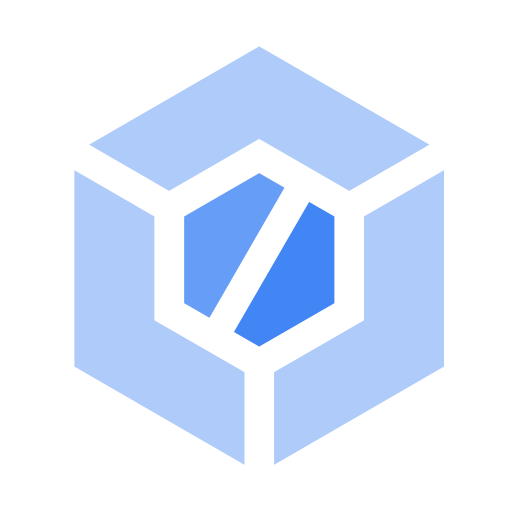 Cloud BuildBuild, test, and deploy on our serverless CI/CD platform.
Cloud BuildBuild, test, and deploy on our serverless CI/CD platform.- Cloud RunBuild and deploy scalable containerized apps written in any language (including Go, Python, Java, Node.js, .NET, and Ruby), fully managed.
 Artifact RegistryStore, manage, and secure your Docker container images.
Artifact RegistryStore, manage, and secure your Docker container images.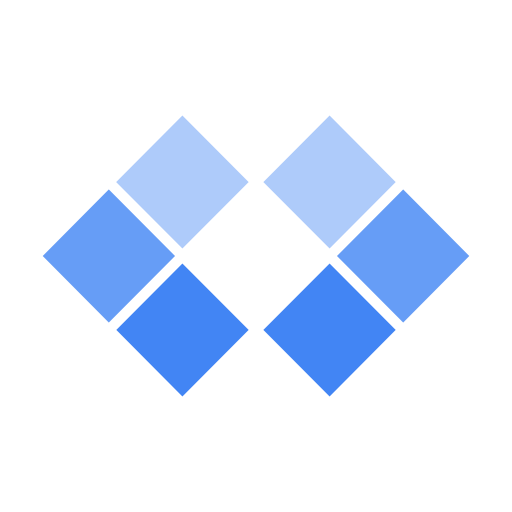 Cloud Code IDE PluginsCloud Code is a set of IDE plugins for popular IDEs that make it easier to create, deploy, and integrate applications with Google Cloud.
Cloud Code IDE PluginsCloud Code is a set of IDE plugins for popular IDEs that make it easier to create, deploy, and integrate applications with Google Cloud.Solution
Application modernizationWith Anthos, you can modernize your apps with containerized microservices and VMs to innovate faster and deliver more to your customers.
Take the Next Step With Containerization
Start building on Google Cloud with $300 in free credits and 20+ always free products.
Need help getting started?
Contact salesWork with a trusted partner
Find a partnerContinue browsing
See all products
- Accelerate your digital transformation
- Whether your business is early in its journey or well on its way to digital transformation, Google Cloud can help solve your toughest challenges.
- Key benefits
- Not seeing what you're looking for?
- See all industry solutions
- Featured Products
- AI and Machine Learning
- Business Intelligence
- Compute
- Containers
- Data Analytics
- Databases
- Developer Tools
- Distributed Cloud
- Hybrid and Multicloud
- Industry Specific
- Integration Services
- Management Tools
- Maps and Geospatial
- Media Services
- Migration
- Mixed Reality
- Networking
- Operations
- Productivity and Collaboration
- Security and Identity
- Serverless
- Storage
- Web3
- Featured Products
- Not seeing what you're looking for?
- See all products (100+)
- Not seeing what you're looking for?
- See all AI and machine learning products
- Business Intelligence
- Not seeing what you're looking for?
- See all compute products
- Not seeing what you're looking for?
- See all data analytics products
- Not seeing what you're looking for?
- See all developer tools
- Hybrid and Multicloud
- Industry Specific
- Not seeing what you're looking for?
- See all management tools
- Media Services
- Not seeing what you're looking for?
- See all networking products
- Productivity and Collaboration
- Not seeing what you're looking for?
- See all security and identity products
- Save money with our transparent approach to pricing
- Google Cloud's pay-as-you-go pricing offers automatic savings based on monthly usage and discounted rates for prepaid resources. Contact us today to get a quote.
- Pricing overview and tools
- Learn & build
- Connect
- Accelerate your digital transformation
- Learn more
- Key benefits
- Why Google Cloud
- AI and ML
- Multicloud
- Global infrastructure
- Data Cloud
- Modern Infrastructure Cloud
- Security
- Productivity and collaboration
- Reports and insights
- Executive insights
- Analyst reports
- Whitepapers
- Customer stories
- Industry Solutions
- Retail
- Consumer Packaged Goods
- Financial Services
- Healthcare and Life Sciences
- Media and Entertainment
- Telecommunications
- Games
- Manufacturing
- Supply Chain and Logistics
- Government
- Education
- See all industry solutions
- See all solutions
- Application Modernization
- CAMP
- Modernize Traditional Applications
- Migrate from PaaS: Cloud Foundry, Openshift
- Migrate from Mainframe
- Modernize Software Delivery
- DevOps Best Practices
- SRE Principles
- Day 2 Operations for GKE
- FinOps and Optimization of GKE
- Run Applications at the Edge
- Architect for Multicloud
- Go Serverless
- Artificial Intelligence
- Customer Engagement Suite with Google AI
- Document AI
- Vertex AI Search for retail
- Gemini for Google Cloud
- Generative AI on Google Cloud
- APIs and Applications
- New Business Channels Using APIs
- Unlocking Legacy Applications Using APIs
- Open Banking APIx
- Data Analytics
- Data Migration
- Data Lake Modernization
- Stream Analytics
- Marketing Analytics
- Datasets
- Business Intelligence
- AI for Data Analytics
- Databases
- Database Migration
- Database Modernization
- Databases for Games
- Google Cloud Databases
- Migrate Oracle workloads to Google Cloud
- Open Source Databases
- SQL Server on Google Cloud
- Gemini for Databases
- Infrastructure Modernization
- Application Migration
- SAP on Google Cloud
- High Performance Computing
- Windows on Google Cloud
- Data Center Migration
- Active Assist
- Virtual Desktops
- Rapid Migration and Modernization Program
- Backup and Disaster Recovery
- Red Hat on Google Cloud
- Cross-Cloud Network
- Observability
- Productivity and Collaboration
- Google Workspace
- Google Workspace Essentials
- Cloud Identity
- Chrome Enterprise
- Security
- Security Analytics and Operations
- Web App and API Protection
- Security and Resilience Framework
- Risk and compliance as code (RCaC)
- Software Supply Chain Security
- Security Foundation
- Google Cloud Cybershield™
- Startups and SMB
- Startup Program
- Small and Medium Business
- Software as a Service
- Featured Products
- Compute Engine
- Cloud Storage
- BigQuery
- Cloud Run
- Google Kubernetes Engine
- Vertex AI
- Looker
- Apigee API Management
- Cloud SQL
- Gemini
- Cloud CDN
- See all products (100+)
- AI and Machine Learning
- Vertex AI Platform
- Vertex AI Studio
- Vertex AI Agent Builder
- Conversational Agents
- Vertex AI Search
- Speech-to-Text
- Text-to-Speech
- Translation AI
- Document AI
- Vision AI
- Contact Center as a Service
- See all AI and machine learning products
- Business Intelligence
- Looker
- Looker Studio
- Compute
- Compute Engine
- App Engine
- Cloud GPUs
- Migrate to Virtual Machines
- Spot VMs
- Batch
- Sole-Tenant Nodes
- Bare Metal
- Recommender
- VMware Engine
- Cloud Run
- See all compute products
- Containers
- Google Kubernetes Engine
- Cloud Run
- Cloud Build
- Artifact Registry
- Cloud Code
- Cloud Deploy
- Migrate to Containers
- Deep Learning Containers
- Knative
- Data Analytics
- BigQuery
- Looker
- Dataflow
- Pub/Sub
- Dataproc
- Cloud Data Fusion
- Cloud Composer
- BigLake
- Dataplex
- Dataform
- Analytics Hub
- See all data analytics products
- Databases
- AlloyDB for PostgreSQL
- Cloud SQL
- Firestore
- Spanner
- Bigtable
- Datastream
- Database Migration Service
- Bare Metal Solution
- Memorystore
- Developer Tools
- Artifact Registry
- Cloud Code
- Cloud Build
- Cloud Deploy
- Cloud Deployment Manager
- Cloud SDK
- Cloud Scheduler
- Cloud Source Repositories
- Infrastructure Manager
- Cloud Workstations
- Gemini Code Assist
- See all developer tools
- Distributed Cloud
- Google Distributed Cloud Connected
- Google Distributed Cloud Air-gapped
- Hybrid and Multicloud
- Google Kubernetes Engine
- Apigee API Management
- Migrate to Containers
- Cloud Build
- Observability
- Cloud Service Mesh
- Google Distributed Cloud
- Industry Specific
- Anti Money Laundering AI
- Cloud Healthcare API
- Device Connect for Fitbit
- Telecom Network Automation
- Telecom Data Fabric
- Telecom Subscriber Insights
- Spectrum Access System (SAS)
- Integration Services
- Application Integration
- Workflows
- Apigee API Management
- Cloud Tasks
- Cloud Scheduler
- Dataproc
- Cloud Data Fusion
- Cloud Composer
- Pub/Sub
- Eventarc
- Management Tools
- Cloud Shell
- Cloud console
- Cloud Endpoints
- Cloud IAM
- Cloud APIs
- Service Catalog
- Cost Management
- Observability
- Carbon Footprint
- Config Connector
- Active Assist
- See all management tools
- Maps and Geospatial
- Earth Engine
- Google Maps Platform
- Media Services
- Cloud CDN
- Live Stream API
- OpenCue
- Transcoder API
- Video Stitcher API
- Migration
- Migration Center
- Application Migration
- Migrate to Virtual Machines
- Cloud Foundation Toolkit
- Database Migration Service
- Migrate to Containers
- BigQuery Data Transfer Service
- Rapid Migration and Modernization Program
- Transfer Appliance
- Storage Transfer Service
- VMware Engine
- Mixed Reality
- Immersive Stream for XR
- Networking
- Cloud Armor
- Cloud CDN and Media CDN
- Cloud DNS
- Cloud Load Balancing
- Cloud NAT
- Cloud Connectivity
- Network Connectivity Center
- Network Intelligence Center
- Network Service Tiers
- Virtual Private Cloud
- Private Service Connect
- See all networking products
- Operations
- Cloud Logging
- Cloud Monitoring
- Error Reporting
- Managed Service for Prometheus
- Cloud Trace
- Cloud Profiler
- Cloud Quotas
- Productivity and Collaboration
- AppSheet
- AppSheet Automation
- Google Workspace
- Google Workspace Essentials
- Gemini for Workspace
- Cloud Identity
- Chrome Enterprise
- Security and Identity
- Cloud IAM
- Sensitive Data Protection
- Mandiant Managed Defense
- Google Threat Intelligence
- Security Command Center
- Cloud Key Management
- Mandiant Incident Response
- Chrome Enterprise Premium
- Assured Workloads
- Google Security Operations
- Mandiant Consulting
- See all security and identity products
- Serverless
- Cloud Run
- Cloud Functions
- App Engine
- Workflows
- API Gateway
- Storage
- Cloud Storage
- Block Storage
- Filestore
- Persistent Disk
- Cloud Storage for Firebase
- Local SSD
- Storage Transfer Service
- Parallelstore
- Google Cloud NetApp Volumes
- Backup and DR Service
- Web3
- Blockchain Node Engine
- Blockchain RPC
- Save money with our transparent approach to pricing
- Request a quote
- Pricing overview and tools
- Google Cloud pricing
- Pricing calculator
- Google Cloud free tier
- Cost optimization framework
- Cost management tools
- Product-specific Pricing
- Compute Engine
- Cloud SQL
- Google Kubernetes Engine
- Cloud Storage
- BigQuery
- See full price list with 100+ products
- Learn & build
- Google Cloud Free Program
- Solution Generator
- Quickstarts
- Blog
- Learning Hub
- Google Cloud certification
- Cloud computing basics
- Cloud Architecture Center
- Connect
- Innovators
- Developer Center
- Events and webinars
- Google Cloud Community
- Consulting and Partners
- Google Cloud Consulting
- Google Cloud Marketplace
- Google Cloud partners
- Become a partner












